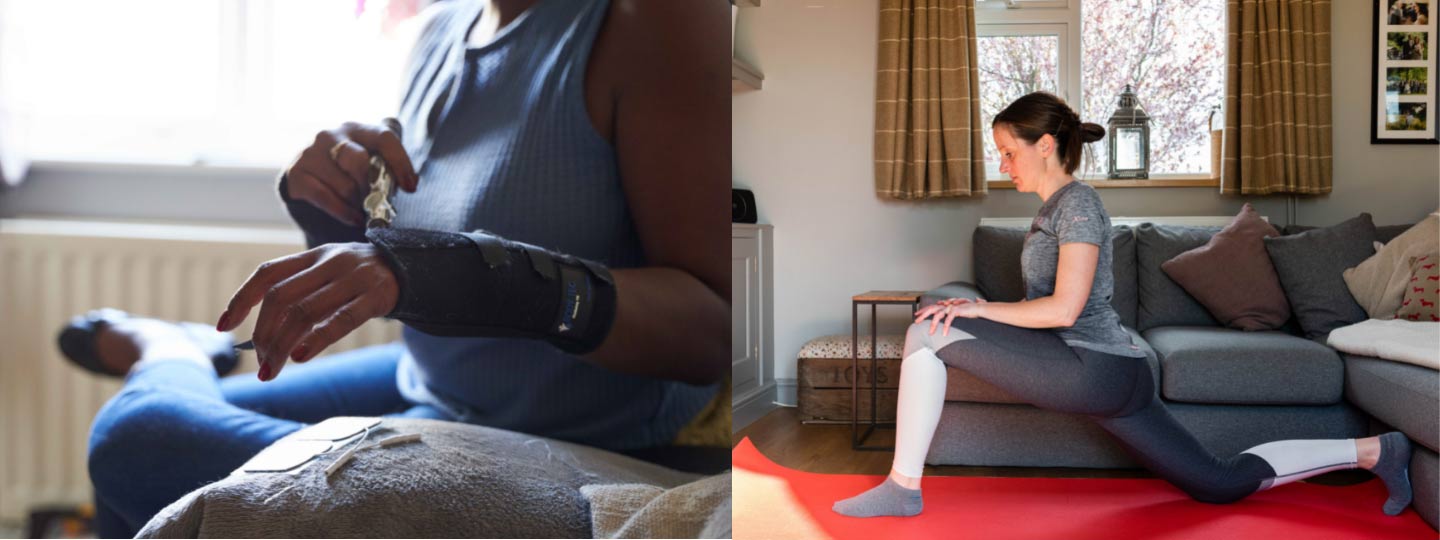Unseen, Unequal and Unfair: Chronic Pain in England
28 June 2021
The findings from Versus Arthritis’s latest report – Unseen, Unequal and Unfair: Chronic Pain in England (PDF, 5.8 MB) – are stark and illustrate the scale of the public health crisis.
Chronic pain (defined as pain which has lasted more than 12 weeks despite treatment or medication) affects around 15.5 million people – a third of the population in England.
Of great concern is that 5.5 million people in England (12% of the population) have high-impact chronic pain, the most disabling form which means a person struggles to take part in daily activities.
Musculoskeletal conditions such as osteoarthritis, back and neck pain, and fibromyalgia are the commonest cause of chronic pain and are the greatest cause of pain and disability in this country.
The impact of chronic pain is unequally felt across different groups in society. People with chronic pain were more likely to live in deprived areas. Additionally, people are more likely to have chronic pain if they are from some minority ethnic groups, if they were women, or if they were older.
We’ve been working hard to raise awareness about musculoskeletal conditions and the impact of the chronic pain they cause.
The release of our latest report shares how chronic pain affects us as a nation and what we collectively need to do about the unseen and unequal burden of chronic pain.
What needs to happen
We need to re-think in how we support people with chronic pain through a far-reaching holistic and comprehensive approach. This report calls on the leaders of local health and care service and public health to:
- Identify every person with high-impact pain and offer the support they need to live well
- Reduce the health inequalities that worsen chronic pain for the most deprived, for women, and certain minority ethnic groups.
- Implement plans to address chronic pain, and regularly report on progress.
Victoria and Sharon share their stories of living with chronic pain and how it’s impacted on their lives.
“I’m Victoria, I’ve lived with chronic pain for over eight years.”
Living life with constant pain is physically and mentally exhausting.
It all started after I suffered whiplash in a car accident in 2012. The pain never went away, and things only got worse over the years that followed.
At first, I was hesitant to take medication, yet I was also fed up with being in pain and not being able to pursue my normal way of life, which has always been very active. I went through many different tests and therapies, but still had no answers.
“The pain slowly increased over the years until I had it every single day, all over my body.”
I couldn’t stand up or move without being in pain and it was filling my every waking hour. On top of this, I was told by several doctors that I probably wouldn’t be able to conceive a child due to the level of stress my body was under.
Over a lengthy period of physiotherapy sessions and multiple discussions about pain science, I had a breakthrough.
“I learned that there are a huge range of factors that can influence pain, such as emotions, beliefs and relationships.”
I also learned that understanding why you are in pain and re-framing how you think about it can change how you experience it.
Shortly after giving birth, a second episode of chronic pain occurred in the form of pelvic pain.
It was really hard for me to accept that I was back to being a chronic pain sufferer. However, because I was more informed about chronic pain and I was able to receive support much earlier, my pain levels have been much lower. I won’t give up hope.
“I’m Sharon, I’m 51 and living in chronic pain due to hypermobility syndrome and fibromyalgia."
I worked as a nurse before I was diagnosed. It was very high intensity, with long shifts and often I didn’t have a chance to look after myself. I started getting cysts all over my body and I had nine surgeries over an 18-month period.
I ran out of energy as soon as I got out of bed and everything hurt. My body was just a ball of pain.
“My doctor said it could be fibromyalgia, which was later confirmed by the rheumatologist.”
Living with pain means your whole way of life changes. I was looking after other people all the time, then I went to wetting myself because I couldn’t get to the toilet, not being able to make myself a meal, having to crawl up the stairs because I couldn’t walk for the pain.
The pain is constant, and nothing ever relieves it completely. You lose your livelihood and a lot of independence, and it’s very hard to ask for help because people don’t understand what you’re going through.
“The pain is invisible because I don’t look ill.”
My mum can notice when I’m in pain, but everyday people will say to me ‘you look fine’. I worry that they think it’s all in my head.
I've tried a number of things to help manage my pain. Deep breathing exercises and mindfulness help a lot, as I tense up when I’m in a lot of pain.
If I were to ask for one immediate thing to be offered to people living with pain it would be counselling, as support and understanding is so important and needed.
Get the support you need
- If you would like to talk to someone, you can call our free helpline on 0800 5200 520.
- Talk to our arthritis virtual assistant, 24/7.
- Join our online community.
- Stay in touch and follow us on Twitter, Facebook and Instagram.